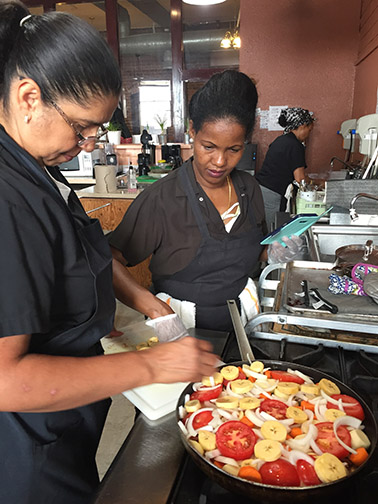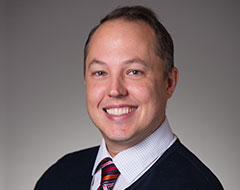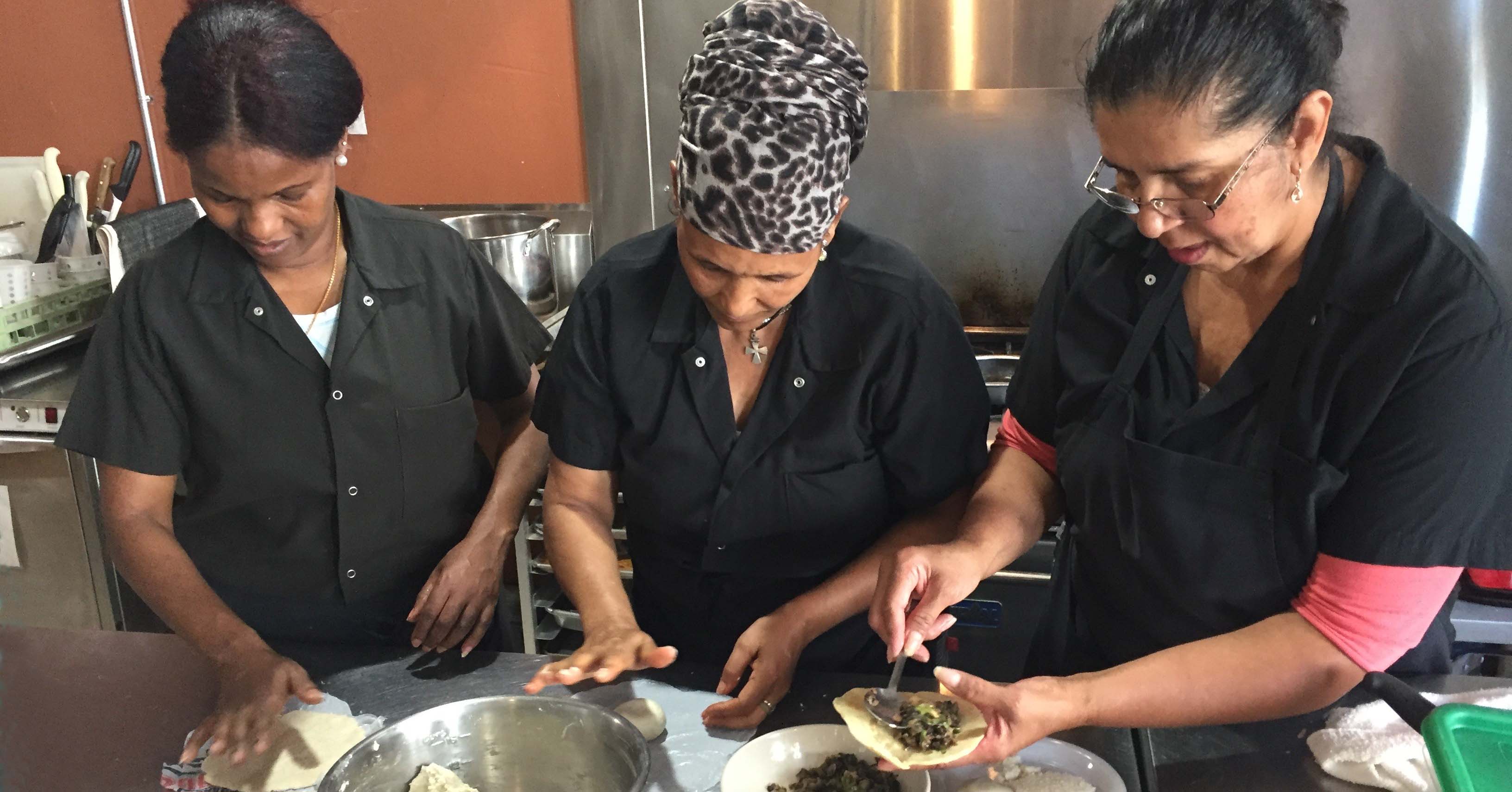Diners at any restaurant know there is a lot happening out of their view, behind the kitchen doors. At Ubuntu Street Café in Kent, it’s more than you can imagine.
Get a glimpse into the Ubuntu kitchen in the Dec. 4 article, “Seattle’s Project Feast Opens Doors for Immigrants and Refugees to Become Culinary Leaders,” published on the Good Food Jobs blog. The article highlights Highline’s partnership with Project Feast.
Justin Taillon was thrilled to see Project Feast receive coverage for the positive work the nonprofit organization does in the community.

Highline College students prepare a dish in the kitchen of Ubuntu Street Café in Kent, the public face of Project Feast. Participants make the most of their culture and heritage by sharing dishes from their homelands with diners, while learning marketable skills through the Project Feast training program. Photo credit: Project Feast
“When you are working with an industry partner, it’s so important for them to have it together. Veena Prasad and her team at Project Feast have it together on the ultimate level,” says Taillon.
“They are taking refugees and immigrants who are new to the U.S. and they are leveraging the skill sets they have into finding jobs,” he says.
Project Feast and Highline College work together to teach the foundational skills of running a food-based business that participants need to capitalize on the assets they bring to their new country.
“I don’t want someone to say they need to Americanize so they can succeed and get a job. I want them to hold onto their heritage and culture and get jobs through it.”
Taillon calls it market-based socio-cultural conservation.
He explains the academic-sounding phrase: “You make the heritage, society and culture worth more alive than dead. You make it financially a good thing for them to keep it alive.
“And that’s exactly what Project Feast does. It is set up like a dream.”

Justin Taillon
Participants in Project Feast automatically become students of Highline College’s 18-credit short-term certificate program, with funding for tuition almost always available from Workforce Education Services, which provides funding for work-based training. The certificate program is designed for students for whom English is not their first language.
“Students from Syria or Ethiopia or Iraq, for example, all come with their own food knowledge. But it’s more than just how to make food, it’s the heritage and culture around the food.”
To see the work of Project Feast participants in action, visit Ubuntu Street Café, open Wednesday through Friday for lunch.


